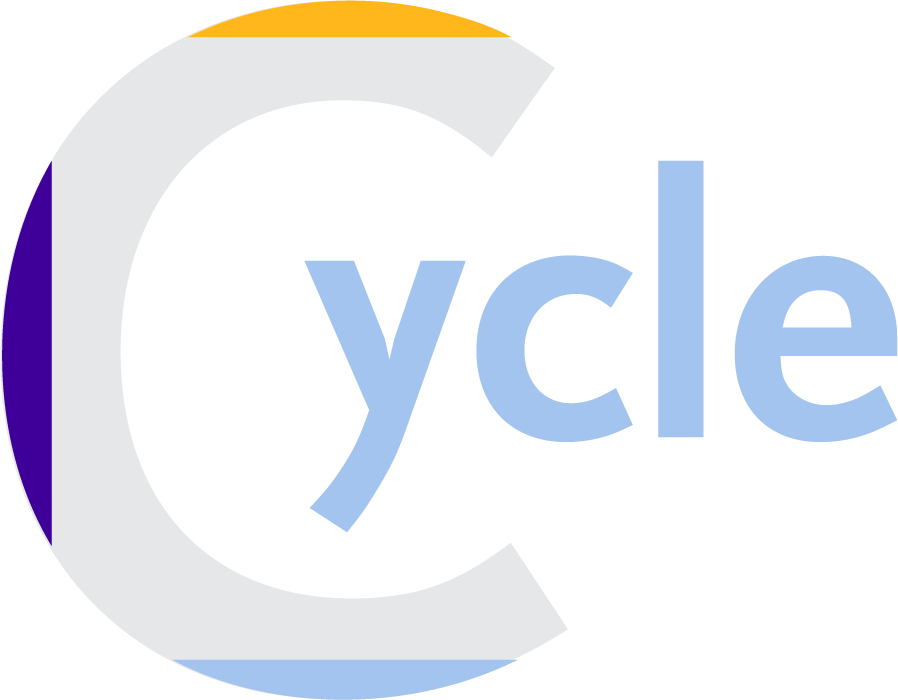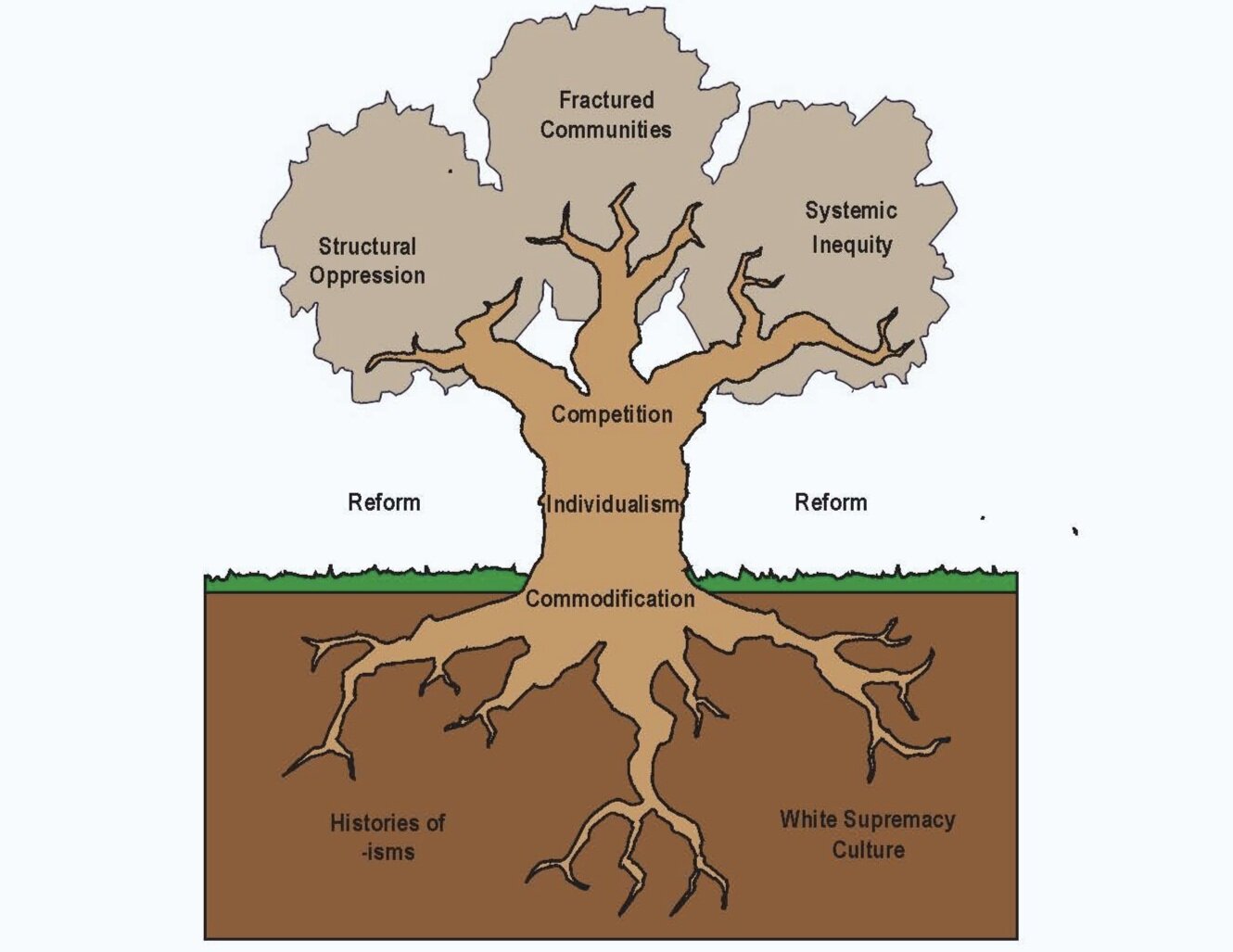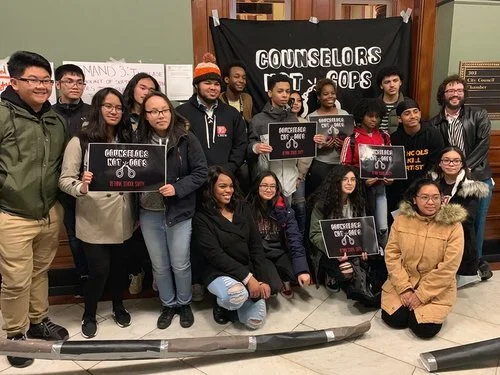CYCLE Turns 2! Looking Back and Forward for Systems Change. Reflections from Our Executive Director, Keith Catone
“Systemic Root Rot” (Image reinterpreted from: M. Warren, K. Mapp, & the Community Organizing and School Reform Project. (2011). A Match on Dry Grass: Community Organizing as a Catalyst for School Reform. New York: Oxford University Press.)
HEALING SYSTEMIC ROOT ROT
On November 6, 2019, just one week shy of CYCLE’s second anniversary, I delivered a keynote address at the Voices for Vermont’s Children annual conference. The conference planners asked me to consider the working title “Reform is Not Enough: Organizing for Transformation.” It was a direct ask that cut right to the chase and, of course, I was intrigued. Speaking to an audience filled with advocates and social sector workers from across the state of Vermont, all centrally concerned with how we can reorient our systems to support young people to grow and thrive, I was forced to consider how and why reform is not enough when considering the challenges we face across the social sectors of education, health, housing, employment, civic participation, reproductive rights, and more. And, so, I developed an idea that I thought would broadly apply called, “systemic root rot.”
Root rot is what often ails our common houseplants. You know, the ones that end up dying no matter how much you try to water and encourage them back to life. It is a frustrating experience when you seem to water an unhealthy plant only to watch it continue to wither. This happens largely because when plant root systems get waterlogged, they cannot grow in soil that isn’t draining properly or that has become contaminated. They develop a plant disease called root rot, which water cannot heal. Similarly, for those of us who have been working for equitable systems change for the past 10, 20, and 30 years (or more!), it can be discouraging when we see reform after reform achieve only incremental change at best, or fail at worst. What if inequitable systems are like our dying houseplants? Their roots are rotten and their healing is prevented by contaminated soil. No matter how many reforms we try, they cannot seem to heal our systemic root rot. Difficulty nursing ailing houseplants back to life and bringing about equitable systems change are common experience among many of us. The upshot, though, is that there is a cure for root rot. It is a meticulous and involved process of cleaning, trimming, decontaminating, and rerooting, but it is possible. It just takes a lot more than water. Thus, to cure systemic root rot our work must move beyond reform.
“Healing Systems” (Image reinterpreted from: M. Warren, K. Mapp, & the Community Organizing and School Reform Project. (2011). A Match on Dry Grass: Community Organizing as a Catalyst for School Reform. New York: Oxford University Press.)
At CYCLE, we ground our work in the theory and practices of community organizing and we believe that organizing provides pathways to heal our systems from root rot. Ultimately, organizing is about individual, community, and institutional transformation (Warren & Mapp, 2011)—the outgrowths of equitable systems change. In our short two years, the CYCLE team has been hard at work in support of communities and schools to understand and utilize community organizing as a tool for systemic change. Our projects and partnerships consistently seek to center the voices, perspectives, and wisdom of those who have been historically marginalized from decision-making and the dominant culture of our school systems, namely youth and parents who are Black, Indigenous, and people of color, low-income communities, and oftentimes frontline educators and school staff. We believe in an approach to community organizing that disrupt the dominant frames of society that grow commodification, individualism, and competition. These destructive frames are rooted in the contaminated soils of historical “isms” and white supremacy culture, and produce structural oppression, fractured communities, and systemic inequities.
Community organizing works to heal our systemic roots so that they might instead support the growth of grassroots leadership, relationships, and collective power. When our systems focus on these things while being rerooted in soils rich with our cultural traditions and communal histories and identities, we can continuously feed them with community organizing to produce thriving people, cohesive communities, and equitable and just systems.
Below, I highlight a few of our projects from the past two years, and then, I preview the promise of some of our emerging work for the future.
LOOKING BACK
Some of the 2019 YPT smiling with CYCLE staff after a successful YLI!
Grassroots Leadership: Centering Youth Leadership and Voice
Each year, CYCLE recruits a 12-person Youth Planning Team (YPT) for our annual Youth Leadership Institute (YLI). YLI is a youth-led convening that offers opportunities for learning, relationship building, and strategy development to 150 youth leaders and nearly 50 adult allies from across New England. The YPT has traditionally been responsible for planning the agenda and curating the content for YLI sessions. However, in response to critical feedback from the 2018 YPT, this past YLI featured YPT members as co-facilitators, with adult facilitator fellows, of YLI teambuilding and learning activities. CYCLE is proud of this advancement of grassroots leadership and excited that a book chapter is currently “in press” that describes the process and evolution of this unique work of youth-adult partnership.
Building Relationships: Facilitating NEYON Learning Communities
CYCLE facilitates and convenes the New England Youth Organizing Network (NEYON). This past year, NEYON launched two learning communities focused on student rights and ethnic studies. These learning communities have engaged more than ten organizations that have learned about each other’s work and strategized together about how to advance the objectives of protecting and promoting student rights and increasing the teaching of ethnic studies. Organizations engaged in these efforts have increased awareness of student rights and responsibilities, provided accessible ways for students to identify and report when their rights have been violated, advanced ethnic studies in high schools around New England, and, in Connecticut, passed statewide legislation mandating Black and Latinx studies in public schools. NEYON learning communities provide avenues for youth leaders and organizations to learn from each other and begin to see how our work is all connected to our larger, shared struggle for educational equity and justice.
Collective Power: Our First CYCLE Strategy Institute (CSI)
In 2019, we designed and facilitated our first CSI—a multi-month long, strategic power-building and campaign planning process that supports grassroots organizations to (1) build long-term, sustainable power, and (2) have more effective campaigns for bringing about educational equity and justice. CSI engages community organizing efforts in a facilitated planning phase that leads to a 3-day convening and follows up with campaign implementation and CYCLE technical assistance. We’re excited to continue developing this model of organizing capacity building support that is expressly aimed at building campaigns for collective power. This first year’s participants—Hartford Parent University (CT), Meriden Children First (CT), Parents & Youth for Change (Burlington & Winooski, VT), Pittsfield Listens (NH), Portland Empowered (ME), and Women Encouraging Empowerment (Revere, MA)—organize in communities across New England.
LOOKING FORWARD
PASS Coalition members
Rerooting Our Systems: Research for a Youth-Centered, Youth-Driven Intergenerational Movement for Racially Just & Equitable Education Systems
Looking forward, CYCLE is poised to increase our research capacity to facilitate learning with community organizing partners. Traditional research is grounded in the dominant frames of our current systems, which makes it difficult to use in pursuit of healing systemic root rot. Research and learning that is in support of community organizing must be grounded in community histories and identities, serving to strengthen the roots of a youth-centered, youth-driven, and intergenerational movement for racially just and equitable education systems. In 2020, we will be completing research in solidarity with the Providence Alliance for Safe Schools (PASS) Coalition’s “Counselors Not Cops” campaign, and we are in pursuit of additional research projects designed to advance community wisdom and grassroots organizing.
Cohesive School Communities: An Organizing Disposition for Educational Leadership
Similar to traditional research, schools are also organized according to dominant beliefs and attitudes designed to uphold current power structures and systemic inequities. The beliefs upholding systemic root rot, like commodification, individualism, and competition, play out in schools that reify historical –isms and white supremacy culture through false meritocracy, overemphasis on test scores, and market/incentive-oriented education policies and programs. Among other things, these beliefs and approaches undervalue and ignore the potential for grassroots leadership and collective power building for systems change, and result in fractured school communities, structural oppression, and inequity. Instead, CYCLE believes that if we are going to transform our education systems, leaders within that system need to develop an “organizing disposition” for educational leadership. This means thinking and acting like an organizer, and prioritizing the values of grassroots leadership development, relationship building, and collective power, resulting in thriving youth, families, and educators, cohesive school communities, and equitable and just schools. CYCLE has received a Spencer Foundation Conference Grant to host a conference in 2020 that will seek to further develop a leadership framework for the “organizing disposition.” Be on the lookout for more information in the coming months!
Equitable & Just Systems: OurSchoolsPVD’s Vision for Transforming Providence Public Schools
The city of Providence and state of Rhode Island face a unique opportunity in the context of the recent state takeover of the Providence Public School District (PPSD). CYCLE is proud of its trusting relationships with youth and parent-led community organizations in Providence, and we are honored to be the convener of the OurSchoolsPVD alliance in partnership with key youth leadership and organizing groups—the Alliance of Rhode Island Southeast Asians for Education (ARISE), Rhode Island Urban Debate League, Providence Student Union (PSU), Providence Youth Student Movement (PrYSM), and Youth In Action (YIA). As we seek to build capacity and power for the alliance, we are hopeful that we can collaborate with state and city leaders, educators, and public officials to ensure that the changes and interventions for PPSD do more than reform, but instead seek to heal systemic root rot by grounding change in the rich histories, identities, and cultural traditions of the youth and communities in Providence.
STAY IN TOUCH!
CYCLE is excited to enter year three of our existence as we lay the groundwork for many more years to come. As you read about this work, we hope you see connections and feel resonance with how you are moving in the world. Please reach out so that we can move together!





